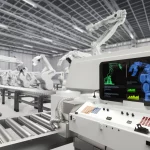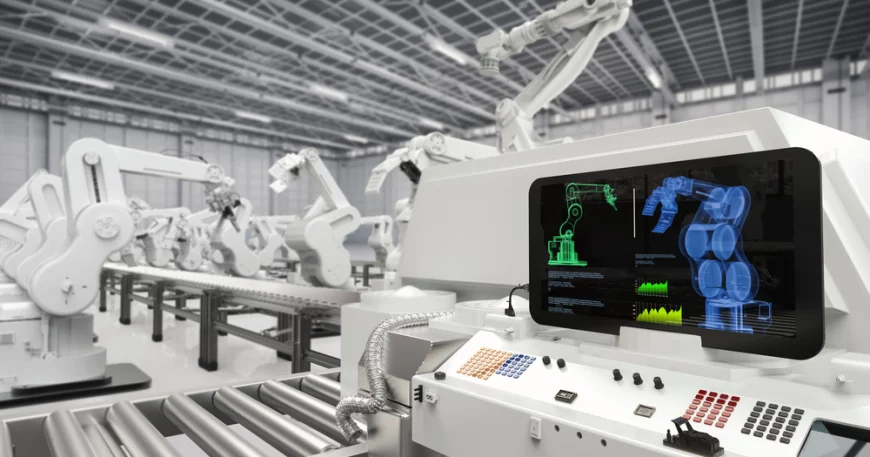Between them the names “Industry 4.0” and “Smart Factory” cover the technologies that are remodeling the way manufacturing functions. Industrial control systems (ICS), supervisory control and data acquisition (SCADA) systems, big data, the Internet of Things (IoT), the Industrial Internet of Things (IIoT), smart and self-learning machines, advanced analytics, robotics, and cognitive computing all fall under the catch all Industry 4.0 description.
Cyber Security is one of the first things that Commstec look at when we are called into consult on a business’s IT infrastructure. In 2022 Ransomware attacks on industrial firms increased by 87% according to a report published by Bloomberg in February. Smart factories have all the same vulnerabilities to malware, denial of service (DoS), device hacking, and other common attack methods that other networks face.
IT security usually refers to the exposed attack surface of a business’s IT infrastructure. That is the total of all the avenues through which an attacker can exploit or compromise the security of the business’s systems, networks, or operations. A smart factory has an expanded attack surface which adds another layer of complexity when trying to detect and defend against cyberattacks. These threats now work on an entirely new level on the internet of things (IoT), and they can result in serious physical and financial consequences for manufacturers.
One of the critical maxims in counter terrorism is now being applied to Cybersecurity. “Attackers have to be lucky once; targets have to be lucky every time.” And it is that increased attack surface where increased connectivity can become an issue. Cyber security innovators Balbix have identified the main security challenges faced by the smart factory.
- Every connected device represents a potential risk.
- Manufacturing systems such as Industrial Control Systems (ICS) have unique vulnerabilities that make them particularly susceptible to cyberattacks.
- Industry 4.0 connects previously isolated systems, to other devices with internet access, which increases the attack surface.
- Upgrades are often installed piecemeal since the systems are very complex.
- Manufacturing has many fewer regulated compliance standards than other sectors.
- Visibility is poor across separate systems and isolated environments.
The manufacturing industry is undergoing a digital transformation and has been since the term Industry 4.0 was coined in 2011. An IT consultant plays a vital role in supporting the implementation and adoption of Industry 4.0 on the shop floor as well as in the office. They bring expertise in a range of technologies and help businesses with adopting the digital infrastructure that will drive their growth. At Commstec our IT Consultancy Service focuses on integrating information technology into your business. By building an understanding of the challenges facing your individual organisation we will give an independent overview of the most appropriate solutions and platforms to support your current IT infrastructure, to improve processes and profitability. The most important thing we bring is a risk focused appraisal of the potential threats posed by cyber-attacks.
The benefit to any industry of embracing digital transformation and the move to smart factories promises is huge. There are challenges in handling the increased emphasis on Cyber Security, but they are manageable. Commstec’s unique people focused approach means we can work with your team, in all areas of the business and with your external suppliers to advise you on the most cost-effective way to embrace the opportunities of Industry 4.0 today and the future, whilst keeping your business secure, and maximising uptime.
Book your free no-obligation Business Technology and Security review today.
IT security Sheffield, Cyber Security Sheffield, South Yorkshire, Barnsley, Rotherham, Doncaster, IT Support




